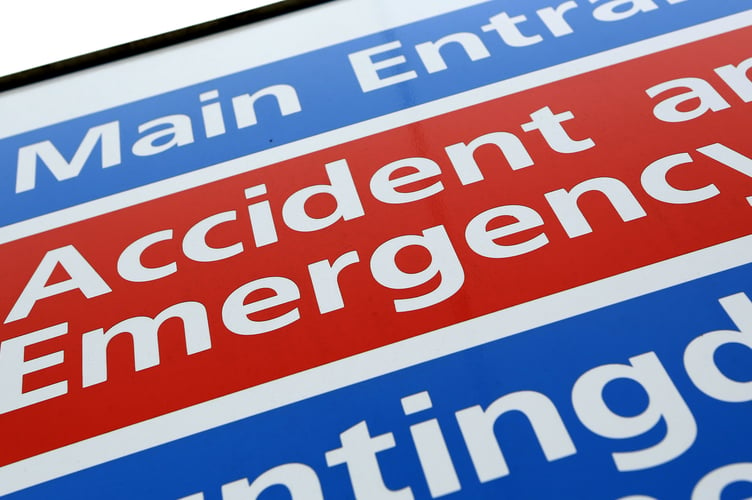Two-thirds of people who arrived at accident and emergency at Plymouth Hospitals Trust last month were seen within four hours, new figures show.
The NHS standard is for 95% of patients to be seen within four hours. However, as part of a recovery plan, the health service has an objective for 78% of patients to be seen within this time frame in March 2025.
Recent NHS England figures show there were 14,335 visits to A&E at University Hospitals Plymouth NHS Trust in August. Of them, 9,710 were seen within four hours – accounting for 68% of arrivals.
Across England, 76% of patients were seen within four hours, an increase from 75% the month before.
Figures also show 28,494 emergency admissions waited more than 12 hours in A&E departments from a decision to admit to actually being admitted – down from 36,806 in July.
The number waiting at least four hours from the decision to admit to admission also dropped, from 129,330 in July to 116,489 last month.
At University Hospitals Plymouth NHS Trust, 987 patients waited longer than four hours, including 297 who were delayed by more than 12 hours.
It comes as the Prime Minister pledged to tackle long waiting lists, improve the nation’s health and shift the focus towards community services after a report from Lord Darzi found the NHS is "in serious trouble".
The rapid review, completed in nine weeks, diagnoses the problems in the NHS in England and sets out themes for the Government to incorporate into a 10-year plan for reforming the health service.
It argues the NHS is facing rising demand for care as people live longer in ill health, coupled with low productivity in hospitals and poor staff morale.
Speaking at the King’s Fund annual conference in London, Sir Keir Starmer said: "NHS staff are working harder than ever but productivity has fallen because patients can’t be discharged. Clinicians are spending their time trying to find beds rather than treating more patients.
"That isn’t just solved by more money, it’s solved by reform."
About 2.2 million people attended A&E departments across England last month.
The overall number of attendances to A&E at University Hospitals Plymouth NHS Trust in August was a drop of 2% on the 14,658 visits recorded during July, but 6% more than the 13,523 patients seen in August 2023.
The NHS said emergency departments experienced the busiest summer ever with a combined 6,776,150 attendances in June, July and August combined – up 240,776 on the same period last year.
Professor Sir Stephen Powis, NHS national medical director, said preparations had begun for an "extremely difficult winter".
He added Lord Darzi's review makes it clear waits across a range of services "remain unacceptable".
Siva Anandaciva, King's Fund chief analyst, said the review is an "opportunity for radical change rather than just tinkering", adding emergency care played a prominent part in the report.
He said: "While there is some variation in performance, not a single hospital operating a major A&E department in England is currently meeting A&E performance standards."
"We don’t need an independent review to know that NHS performance is bad and that the government has received a troubled inheritance. What we need is a mandate for change," he added.



